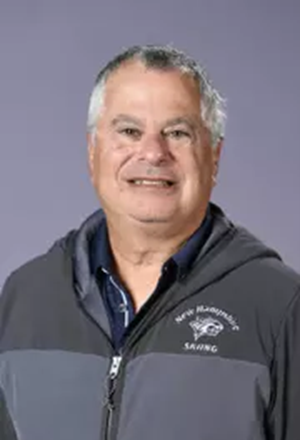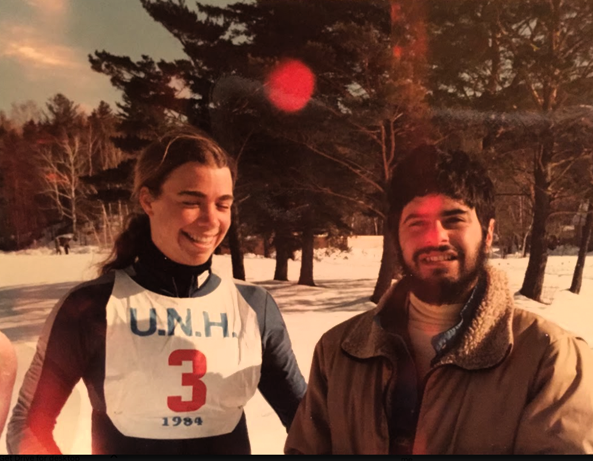
Let’s jump into our FasterSkier time machine and go back to 1982. Ronald Reagan was President, the internet hadn’t been invented, and social media wasn’t even a concept. The Berlin wall would still be standing for another seven years, and therefore East Berlin and the Soviet Union were still a thing. Americans were looking back fondly at the 1980 winter Olympics in Lake Placid, New York, where the miracle on ice—the U.S. hockey team winning the gold medal—was still a fresh memory, Bill Koch had represented the U.S. in cross-country skiing and would go on to become the first American to win a medal in a world championship when he took home the bronze in the 30-kilometer race in 1982. No designation for Freestyle or Classic had yet been developed! Enough of the historical perspective, just accept it was a long time ago.
It was during this bygone era that a recent graduate from the University of New Hampshire (U.N.H.) accepted an assistant coaching position at his alma mater, becoming the head coach of the cross-country ski team soon thereafter. A mere 42 years later, that man, Cory Schwartz, has decided the time has come to retire after spending his entire career at U.N.H.
42 years is a long time to stay in one place in any profession. In coaching, it’s almost unheard of. The basketball world was recently agog during March madness when Oakland University’s coach of 40 years—Greg Kampe—won his first round tournament game. The legendary George Halas of the NFL lasted 40 years as a coach. Schwartz has them both beat. He’s tied for longevity with a fellow named Mike Krzyzewski who coached Duke basketball for a minute or two. There are a handful of people who have had coaching careers in one place longer than Schwartz, but you can literally count them on one hand—Connie Mack— who managed the Philadelphia Athletics for 50 seasons— probably holds the unofficial record, and he didn’t beat Schwartz by much.
Schwartz didn’t set out to become a coaching icon. Like so many major accomplishments, much of it was serendipitous. Schwartz’s career began when he started skiing for U.N.H. as a student in 1977. He ended up being asked to coach and rose to the rank of the head cross-country coach and ski coordinator—which includes Alpine— for the University. Along the way, his athletes notched 31 top ten NCAA finishes, including skiers who accounted for 64 All American team selections.
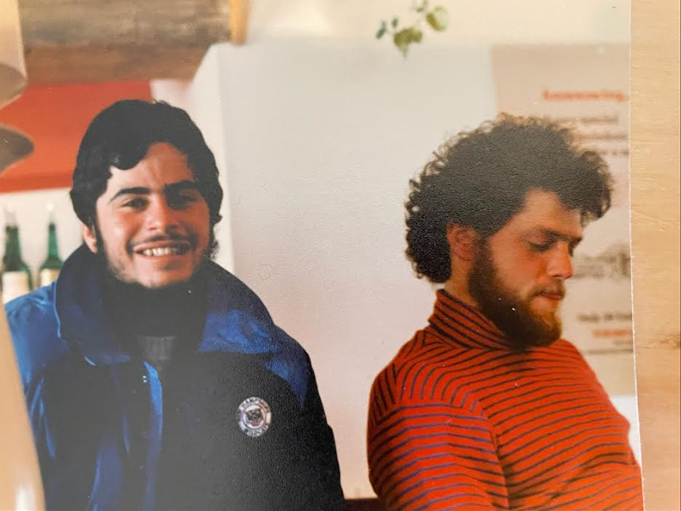
It was those early, rough-hewn days in the late 1970’s at U.N.H. that laid the foundation for Schwartz’s coaching philosophy—team building. The team was very small then, and they had to support and help each other to make it through a season. The necessity of that era led to Schwartz’s hallmark: creating a great team atmosphere. That was something for which Schwartz was always known throughout his career. He was a trailblazer in this philosophy long before it became so popular on national teams, and well before the U.S. national team became famous for it. You can trace the philosophy’s roots back to the early days of fighting for skiing survival in the late 1970’s.
Schwartz entered the coaching business when he was asked by his coach, Buzz Davis, to assist him. He was assistant Nordic coach during his fifth year in college in 1982, and a short two years after college he was the coach for the Nordic team.
The Coach
There was no guide book on how to do the job. “I learned by making mistakes and making some good decisions,” Schwartz told FasterSkier. I wasn’t much older than my team. I was 23. I observed a lot of other coaches at U.N.H. to see how they communicated.”
One might think that being just a few years older than his students might have created problems with respect and authority, but it didn’t. “I don’t think it was an issue, but it was a concern of mine,” said Schwartz. “You’re in charge and you want to make sure that nothing (bad) happens. I was their coach, but also felt I was a trusted friend.”
Fast forward 42 years and Schwartz’s official title is ‘Ski Coordinator/Head Coach Nordic’.’ His duties include not only coaching the cross-country team but managing administrative duties for the downhill team as well. “I oversee the whole program: Alpine and Nordic, men’s and women’s.” But true to his team first philosophy, he doesn’t really separate the two disciplines. “We’re trying to create a whole team here, not just a Nordic team and an Alpine team. We’re one team.”
It’s fair to say that life at U.N.H. has been the sun of Schwartz’s solar system. Not only did he ski there as an undergraduate and coach there his entire career, but he also met his wife, Julie, at U.N.H. when she was a freshman on the ski team, and Schwartz was still racing for the team. “46 of my years have been either as a student or coach here at U.N.H.”
During Schwartz’s first year of skiing, the team was almost cut. It was an issue that would repeat throughout Schwartz’s career. But the adversity of fighting for survival created a bond between the small team with collaboration becoming essential. This bonding created the template that Schwartz would rely on and expand throughout his entire coaching life.
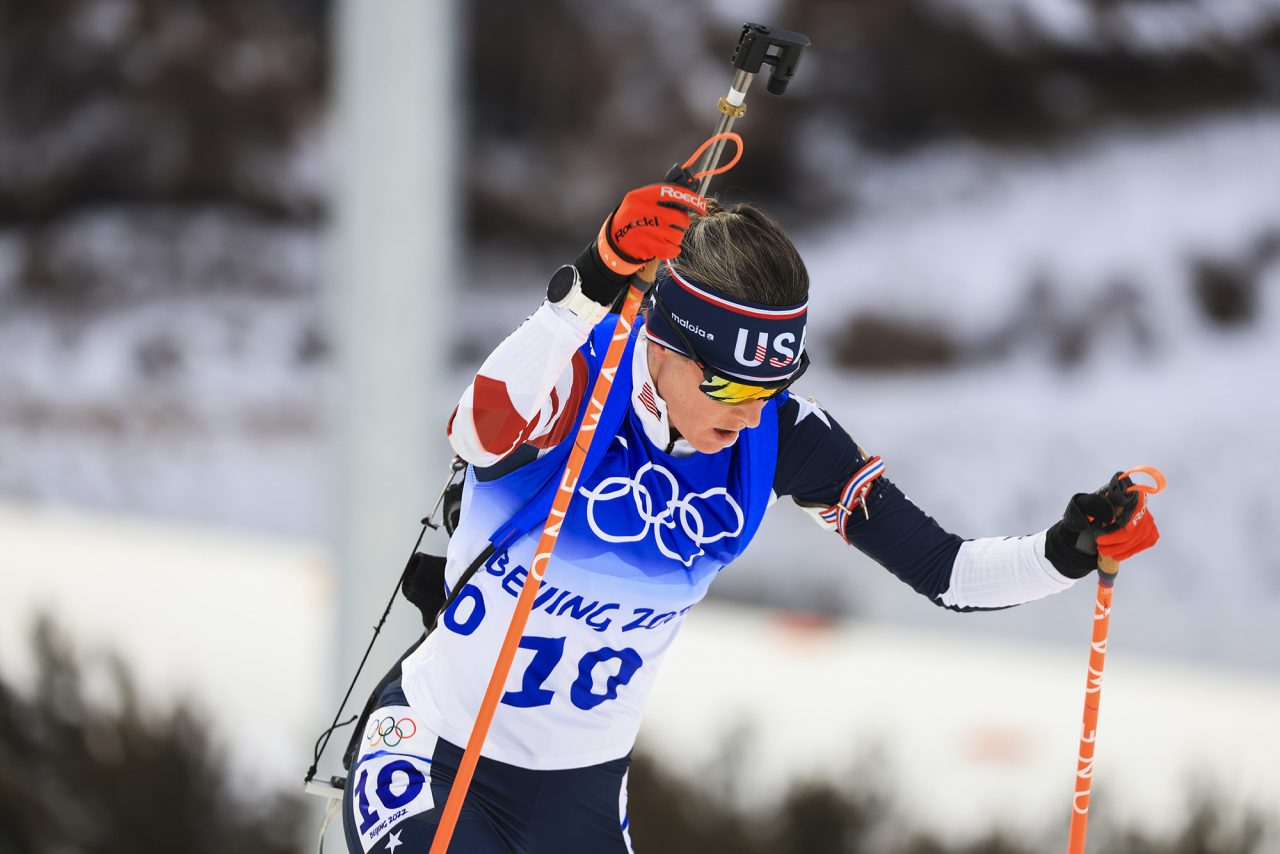
When you speak with some of Schwartz’s many well-known alumni one of the first things they all mention is what a great team atmosphere he created. U.S. biathlon team member and Olympian Clare Egan raced at U.N.H. for one year and told FasterSkier that, “it played an outsized role in my athletic career.” She continued that, “what stands out most about my year at U.N.H. is the team environment Cory cultivated. Cory’s biggest strength, in my view, is his extraordinary ability to bring a team together.”
Patrick Weaver, coach for the University of Vermont’s cross-country ski team and two time Olympian also skied for Schwartz. “The team environment that Cory creates extends beyond skiing,” Weaver told FasterSkier. “He wants his skiers to be successful, but also has high expectations for their character and wants the athletes to feel a responsibility to something larger than themselves, and I think that is a major factor in the success of his program.”
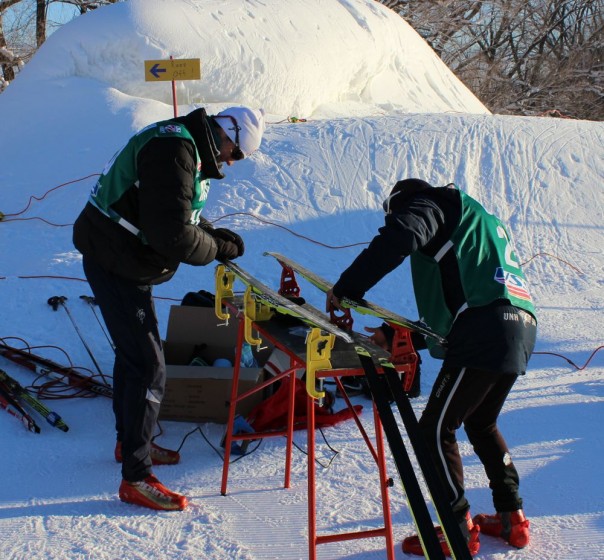
Another branch of the Schwartz development tree is Williams College cross-country ski coach Steve Monsulick. He worked with Schwartz for 13 years at U.N.H. and credits him with having a large influence on his coaching approach. “I learned how to create a supportive, focused, and fun team environment,” said Monsulick. “I learned how to cultivate personal relationships with athletes. Cory is truly interested in them; he cares about them both inside and outside of the scope of skiing.” Monsulick observed that the relationships Schwartz builds last a lifetime. “He gets really excited to hear that former athletes got into grad school, got a new job, had a baby or got engaged. He has been to so many of his athletes’ weddings (Nordic and Alpine), which goes to show the type of role he plays in his skiers’ lives. He knows the right buttons to push to get you fired up, but he’s also there for you whenever you need him.”
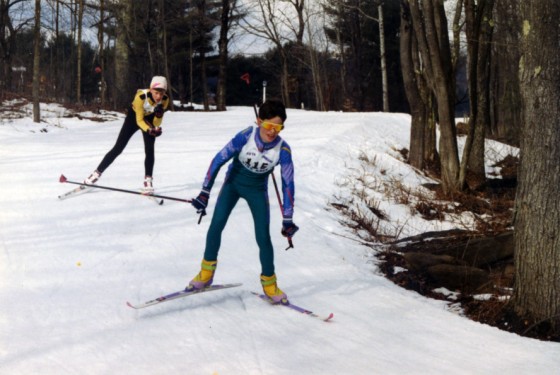
Another one of Schwartz’s alumni is Matt Voisin, the owner of this publication. “Cory created an atmosphere that was fun to be around and made all of us connected immediately,” Voisin commented. “That was so much more than just sport. I never felt that I was there as an individual, but that I was there to represent U.N.H., and working together as a team for a common team goal.” Schwarz shared some potentially embarrassing anecdotes about Voisin’s days at U.N.H., but those will be kept locked in the FasterSkier vault…for now.
Schwartz’s easy recollection of Voisin’s antics a quarter century ago reveals one of the more remarkable things you notice when speaking with Schwartz: his keen ability to remember minute details. The flood of memories over four decades hasn’t dimmed his ability to talk about events from 40 years ago like they happened yesterday. He appears to have the ability to discuss a race from the middle of last season with the same detail and ease with which he can discuss one from the 1980s.
It was through adversity that the team dynamic really began to blossom. “There were only two or three of us on the men’s team (in the late 1970s), so we tried to work together to help each other.” Schwartz credits his team building approach to those early days of scraping by on a small team and fighting for the team’s survival. “I think it started there, without us knowing. It was something we all tried to do to support each other not knowing where it was going to end up.”
Return to FasterSkier for Part II of our interview with Cory Schwartz.
